QuestionHello Tina,
We have an old male cat, 17 or 18 years old. He's having some health problems, which we are addressing (began having seizures, so we've been testing him. Treating him for toxoplasmosis, plus phenobarb for seizures). One symptom which has not improved and which has been going on for many months and seems to be worse now is that he often does not urinate in the litter box. I've read that it could be a urinary tract infection, or some other physical problem. I don't think it is, as he's been at the vet so much lately I think they'd have caught it. Perhaps not. I have also read that one cat may be intimidated by another, and I think there may be something to that in our case--our other, larger female cat has been hissing and batting at him if he gets too close, and that's pretty new behavior. So he may not want to be caught in the litterbox by her, when he is most vulnerable. If we get another litter box, whose should it be? And where is it best to place it? Near the other one? Or in another room? We'd sure like it to be in a room that can be mopped! Any information you can provide would be appreciated. I've read several places that getting another box may help. But none says where the second box should be, or who should use it. Both our cats are used to the one box, which we clean frequently (2-4 times a day). Thanks in advance for your time.
Regards,
Jo
AnswerHi Jo,
Sounds like you are doing your best to make your senior kitty healthy and happy! First of all, I'm a bit surprised that he's being treated for toxoplasmosis.. this is not a common problem in cats and doesn't usually show up in older ones. Over 50% of cats have been exposed to the parasite in their lives but it generally does not affect them at all. Siezures are frequently caused by hyperthyroidism - has your vet checked his T4 level? That can also cause weight loss and other symptoms. I think you may want to get a second opinion, and ask the vet to run a full blood panel if they have not already.
It is likely the urination is connected to his other medical problems... whether because of disorientation from the seizures or a urinary infection, the only way to tell is to have the vet take a urine sample and check it. THey probably have NOT done this automatically, so unless you tell them about the problem and ask them to do urinalysis they would not have. Older cats are very susceptible to infections and other urinary tract problems. The reason I think this is liekly instead of the ambushing is that he is only urinating outside the box but still uses it to defecate. That indicates to me that he is having a problem specifically related to unrination.
After you rule out medical problems, it could be that he is being attacked by the other cat. Especially if he is ill, the other cat may be freaked out by his "sick smell" and be aggressive. Get a second box that is large but low sides (or cut down an entrance so he can get in and out easily). A covered box is preferred by some cats as they feel less vulnerable - but it has to be big enough that the cat can get in and turn around easily. Get a jumbo sized box. Try putting it in another room away from the other box so he feels like it is his and it's less likely that the other cat can watch both boxes at once. Make sure both get cleaned twice a day, and are in quiet private locations. When you introduce the new box, just carry your kitty to the room and dig in the box with the scoop. The sound of the digging will tell him a litter box is there and he will seek it out when he needs it.
Here is some advice about cleaning up after the messes and dealing with a bladder infection:
The vet will run a urinalysis to check for these problems. They may
find that he has a bladder infection and prescribe a course of
antibiotics. Make sure you give him all the pills if they are prescribed -
if you stop early the infection can come back even worse! Also if left
untreated a bladder infection can spread to the kidneys and make him very
ill and cause permanent damage to the kidneys.
The vet may also recommend a special food. If s/he doesn't give a
prescription diet then I recommend
Wellness (http://www.oldmotherhubbard.com)
Nutro Max cat (http://www.nutroproducts.com)
or Royal Canin Adult formula (www.felinenutrition.com)
for your cat. These foods are more expensive per bag than cheaper ones but
your cat doesn't need to eat as much of it since it's high quality meat
with less filler (that means less ends up in the litter box as waste
too!). These foods are shown to produce an acidic urine which reduces the
incidence or recurrence of bladder infections.
While your cat is recovering from the infection, make sure you clean all
the soiled areas thoroughly with Nature's Miracle - an enzyme cleaner
available at many pet stores which breaks down cat urine at the molecular
level so cats can't smell it (and neither can you!). That's important
because if she smells urine there at all she will go there again. You need
to soak carpet or furniture with Nature's Miracle and leave it to dry. If
you are not sure where all the smells are coming from, try using a black
light (available at many pet stores for this reason) with the light out
scan the area with the black light and contaminated spots will glow. Just
washing the cover won't be enough, the cats can still smell the
pheremones.
Good luck!

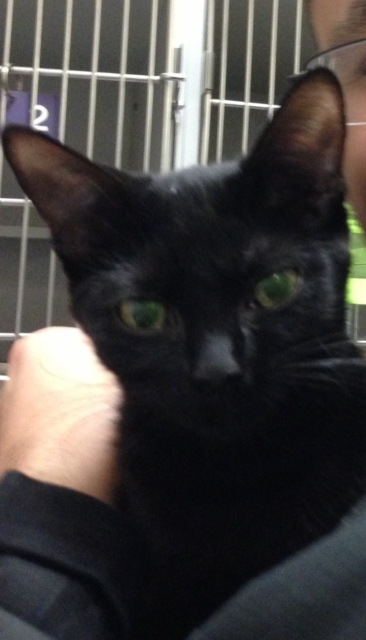 Bombay at local pound??!
Question
Wide set eyes Kitten
Hi I have a
Bombay at local pound??!
Question
Wide set eyes Kitten
Hi I have a
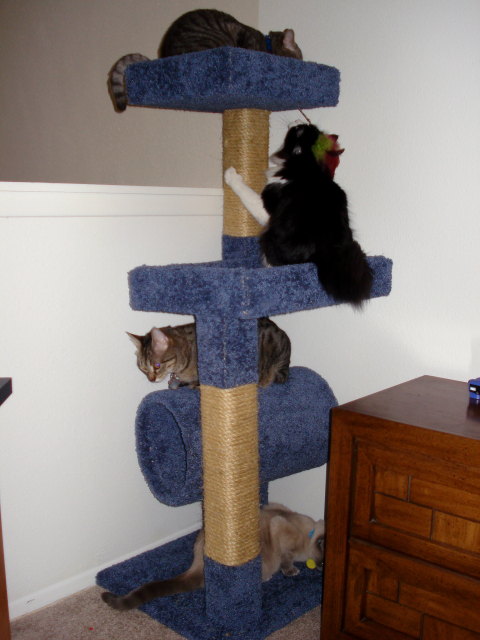 Cat and Dog Introductions
QuestionHi!
I recently acquired a tortie; although I wa
Cat and Dog Introductions
QuestionHi!
I recently acquired a tortie; although I wa
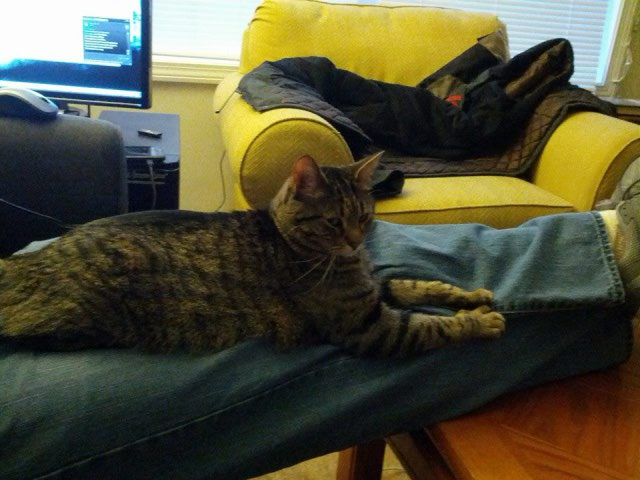 Chinese Li Hua?
Question
Magnus1
Hi,
My husband and I recently
Chinese Li Hua?
Question
Magnus1
Hi,
My husband and I recently
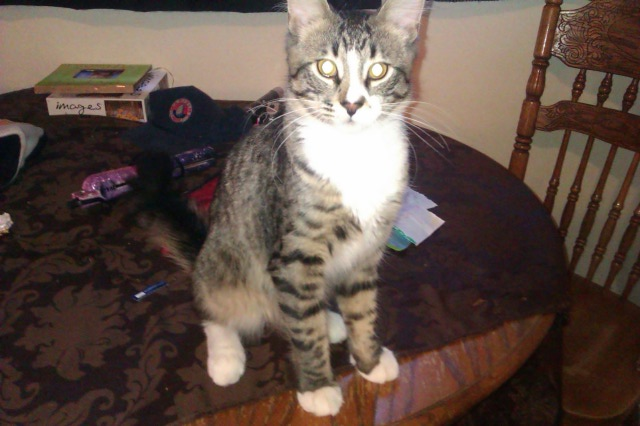 What Breed Is My Cat ??
Question
Cloud1 Cloud2
Hey, my boyfriend a
What Breed Is My Cat ??
Question
Cloud1 Cloud2
Hey, my boyfriend a
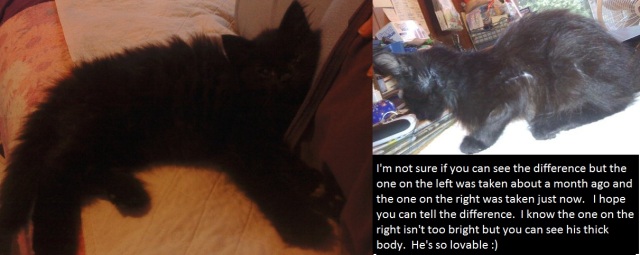 Kitten lossing weight drastically
QuestionTubby before and after
QUESTION: Hello.
Kitten lossing weight drastically
QuestionTubby before and after
QUESTION: Hello.